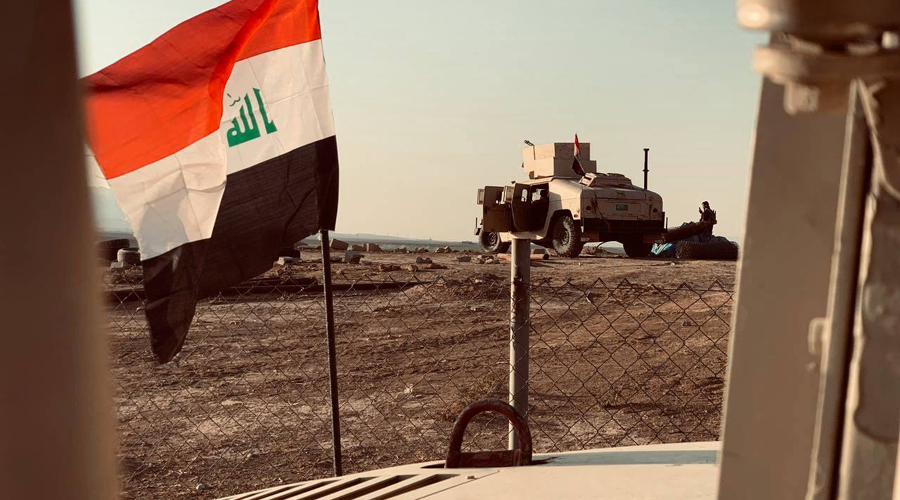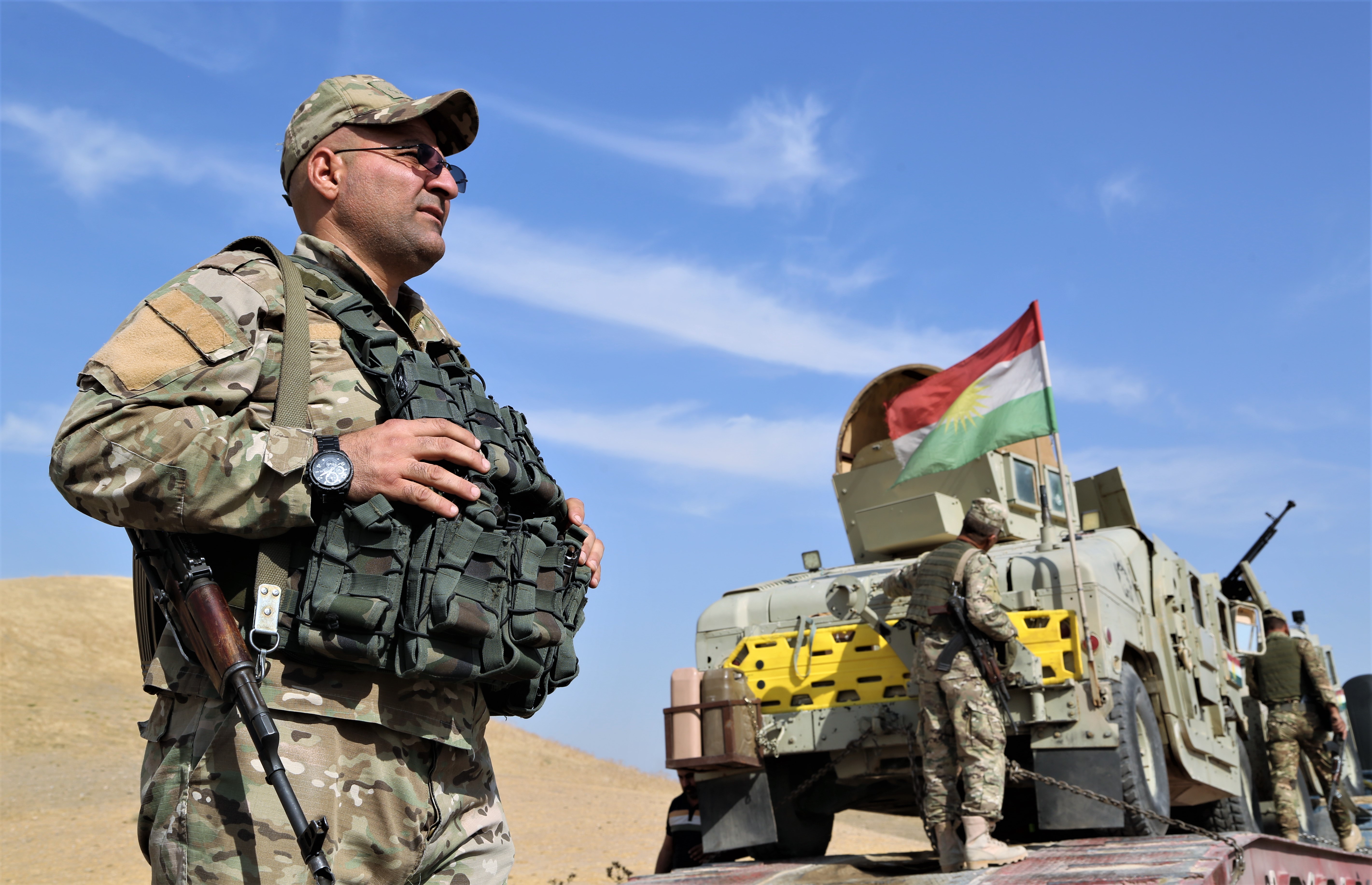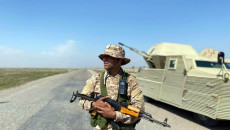It is scheduled that the Iraqi Kurdistan Peshmerga (Kurdish fighter) forces will be deployed to fill in the security gaps at the outskirts of Kirkuk and other disputed territories, as part of two joint brigades with the Iraqi army.
The two joint brigades’ tasks are related to the implementation of the Federal Budget Law, which the Ministry of Finance has not yet issued instructions for its implementation, and it is expected that they will be directed this week to the ministries.
Sagvan Yusuf, a member of the Parliamentary Defense and Security Committee, told KirkukNow, “All matters related to the two brigades have been completed, with the exception of some administrative and technical procedures, which will be completed in the next few days. and Kurdistan Region.
According to previous statistics of the Ministry of Peshmerga Affairs MoPA, the lines separating the Iraqi army forces and the Peshmerga extend 560 kilometers from Khanaqin in Diyala, east on the borders with Iran, up to the Suhaila region in Nineveh, in the west borders with Syria.
All matters related to the two brigades have been completed
Major General Abd al-Khaliq Talaat, the representative of the Kurdistan Regional Government KRG in the Iraqi Joint Operations Command, told KirkukNow, "All matters related to the appointment of the two joint brigades have been completed, a budget has been allocated for them, and it remains only to form committees and carry out their tasks."
Military officials and parliament did not set any date for the two brigades to assume their duties.
"These forces will be deployed in the security spaces that exist between Iraq and the Kurdistan Region, and the two brigades will carry out their duties together," indicating that "if the brigade commander is from the Arab component, his deputy will be from the Kurdish component, and vice versa.”
The two brigades have received training in preparation for taking over security duties in Kirkuk and other disputed areas, and the Iraqi government will pay the salaries of the two brigade employees, and they will be armed in cooperation with the international coalition.
The representative of the KRG in the Joint Operations Command says each joint brigade consists of two 2,000 personnel, and it is planned to increase the number to 2,500, and the salaries of the affiliates will be fixed as soon as they start the tasks.
Sleeper cells and resistant pockets of the so-called Islamic State in Iraq and Syria ISIS are regrouping in the rural areas of the disputed territories between Baghdad and Erbil. They are posing a high threat by different tactics such as hit-and-run attacks, kidnappings, IEDs and roadside bombs targeting the Iraqi Security Forces ISF, the Peshmerga and the civilians.
Occasionally, remnants of ISIL militants launch attacks in the disputed territories, although the Iraqi government late 2017 announced the complete elimination of that armed group in Iraq.

KirkukNow tried to get statements from officials in the MoPA, but they refused to make any statements about the two joint brigades, saying only that their affairs have been completed pending the implementation of the Federal Budget Law.
Lieutenant General Issa Uzair, MoPA Chairman of the Joint Staff, congratulated the officers and Peshmerga of the 20th Infantry Brigade, who are part of the two joint brigades, on the occasion of approving the budget law and the budget allocated to the two brigades, and their number, according to their saying, is "3777 officers and affiliates," referring to the region's share in the two brigades.
The Federal Budget Law for the years 2023, 2024 and 2025 was published last June in the Iraqi Gazette, but instructions for its implementation have not yet been issued.
The member of the Parliamentary Security and Defense Committee says that all the expenses of the two brigades, starting from salaries and ending with the provision of weapons and other supplies, are sponsored by the Iraqi Ministry of Defense.
“If we do not succeed in filling these security gaps with these two brigades, we will think about forming a third brigade,” Yusuf added.
The existing security gaps cannot be filled with two brigades
The formation of the two joint brigades came after months of discussions and meetings between representatives of the Iraqi Ministry of Defense and the KRG MoPA over the past years about the security and military file in Kirkuk and other disputed areas.
Major General Talaat says, "The existing security gaps cannot be filled with two brigades. According to our estimates, at least four or five brigades are required, but in the first stage, the two brigades will begin their duties experimentally to see what the results will be, after which we will work to form other brigades."
Bridging the security gaps between the forces of the federal government and the forces of the Iraqi Kurdistan Region IKR is part of the ministerial curriculum of the Iraqi government chaired by Prime Minister Muhammad Shia al-Sudani, which was approved by the Iraqi Parliament on October 27, 2022.
"Without a doubt, the two brigades undertook their duties as a very good step to fill the security gaps, tighten control and maintain security in those areas. The Iraqi government intends to protect these areas, and the international coalition forces will supervise all procedures," Maj. Gen. Talaat said.
The MoPA figures show that ISIS have carried out 2412 attacks in the last four years, from 2018 up to 2021.
The Iraqi army and the Peshmerga formed a number of joint coordination rooms in Baghdad, Erbil, Kirkuk, Diyala and several areas in Nineveh to exchange military and intelligence information.






